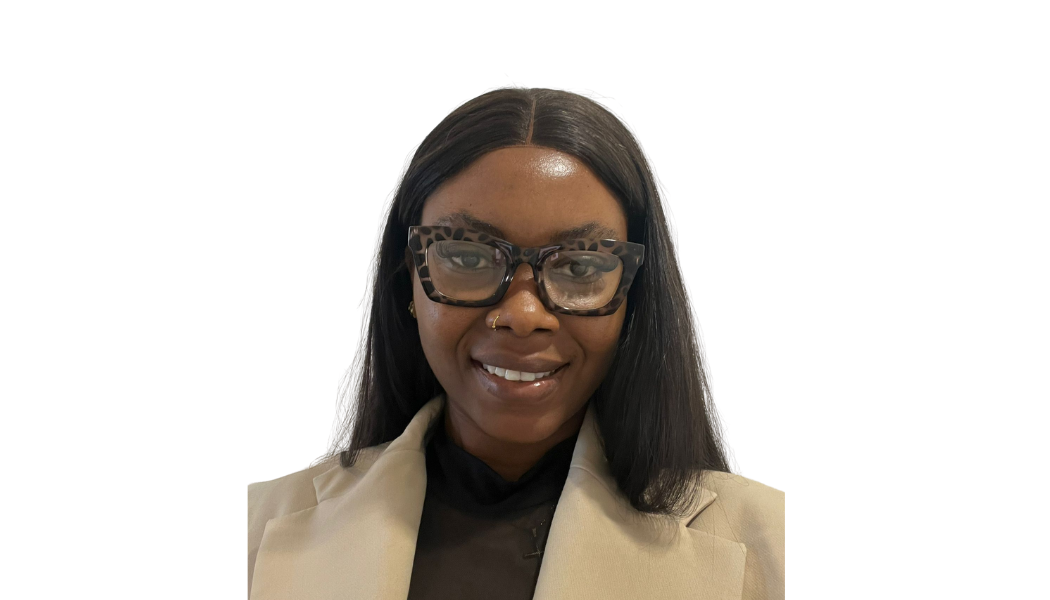When Dratech Hackathon 2024 convenes during the Dratech International annual conference, one of the judges delegating outcomes will be Ibukunoluwa Mary Adegbite. The choice is deliberate. She brings a blended track record: peer-reviewed research that tackles violent crime with computer vision, hands-on delivery of data products in startups, and public-facing advocacy for data literacy across Nigeria’s small and medium businesses. That mix is exactly what a high-stakes hackathon needs: technical depth, product judgment, and a clear sense of social purpose.
This profile explains who she is, what she has built up to 2024, why Dratech invited her to the bench, and what her presence means for teams competing at the hackathon. It reads like a briefing for a fellow judge or an informed attendee who wants to know why her perspective matters.
Quick read: Why she matters for Dratech Hackathon 2024
Here’s the thing. Judges matter when the problems are messy and the solutions must be usable. Ibukunoluwa’s work sits at that intersection. Her research on Automatic Number Plate Recognition applied to Nigeria’s license plate system demonstrated practical results in controlled tests and offered a clear path toward real-world deployment. She has taken machine learning from notebooks to products that increased user engagement and informed product expansion decisions at fintech and media startups. She also co-founded a culturally minded food-tech platform and launched a consumer-facing product, which shows she understands scale, operations, and customer experience as well as algorithms. All of that informed Dratech’s invitation to serve as judge.
The role: Dratech Hackathon 2024 at the Dratech AWARD conference
The Dratech Hackathon runs inside the Dratech AWARD annual conference, a gathering intended to celebrate and accelerate African technology talent. Teams will present prototypes and pitch solutions that touch finance, security, health, and civic systems. As a judge, Ibukunoluwa will assess technical validity, product-market fit, and deployment feasibility. Expect her to ask specific, practical questions: how will this run with real users, what does the data pipeline look like, can the model survive poor-quality inputs, and how will the product keep people safe and accountable if deployed in the field.
Dratech selected judges that combine domain knowledge with product experience. Ibukunoluwa’s contributions to ANPR research and her product roles make her uniquely qualified to evaluate both prototype accuracy and operational readiness. That matters when winners receive not just trophies but introductions to partners and pathways to scale.
Background and trajectory up to 2024
Ibukunoluwa’s academic foundation is a B.Sc. in Banking and Finance from the University of Abuja, class of 2019. She pivoted into data and software through structured self-study, online certifications, and practical work. Between 2022 and 2023 she took Python and data science courses and moved quickly into professional roles where she built production systems. Her CV records targeted technical skills: Python, Pandas, NumPy, Power BI, SQL, Jupyter, Streamlit, and cloud exposure with GCP and AWS, all relevant to judging modern hackathon projects.
Her career path is compact and fast-moving by design. She joined Zacra Learning Limited in late 2022 and while there built a personalized recommendation engine that increased content engagement metrics by more than 30 percent. That work required not just modeling but instrumentation and collaboration with editors and product managers to translate signals into a measurable business outcome. Later, in 2023, she joined FountainPay and led work on real-time data pipelines and dashboards. Those systems informed a market expansion strategy that targeted high-conversion regions and supported entry into two additional Nigerian markets. Each role shows an ability to link analytics to decisions.
She also founded Bukaspot, a food-tech platform, and in 2024 moved into a co-founder role for Tofadfashion, a culturally authentic meal delivery and commerce product. That entrepreneurial work demonstrates an operational sensibility: user flows, logistics, recommendation models, and early traction metrics. Those skills matter in a hackathon where prototypes must be credible and scalable.
Media recognition came in 2023 with a feature in The Guardian Nigeria on data literacy. That piece positioned her as an advocate for practical data skills among SMEs, a strand that runs through her product and research work.
The research that defines her approach: ANPR, explained
If there is a single project that shaped her public profile up to 2024, it is the co-authored paper ANPR: A Novel Technique in Crime Reduction. The research tackles an acute problem in Nigeria: vehicle-enabled kidnappings and criminal mobility. Instead of proposing abstract models, the team built a pipeline that combines image preprocessing, contour detection, and optical character recognition using Pytesseract to extract license plate characters from Nigerian plates. The methodology is deliberate and tailored. It accounts for local plate formats, state identifiers, and the color schemes used to distinguish private, commercial, and government vehicles. The ANPR work is available in manuscript form.
Let’s break down the technical flow in plain language. The pipeline starts with image acquisition, then converts color images to grayscale to reduce complexity. A bilateral filter smooths noise while preserving edges. Edge detection using the Canny algorithm reveals contours. The algorithm selects contours that resemble plate shapes, extracts the plate region, and runs an OCR pass with Pytesseract to convert characters into text. The team saved reads to a local CSV database for later analysis, giving the prototype a pragmatic logging approach useful in early deployments. The paper documents the key metrics from stationary-vehicle tests: 100 percent accuracy in plate localization and 90 percent accuracy in character extraction for the dataset used. Those figures are impressive for controlled tests and give a credible starting point for field work.
What this really means is that she and her co-authors moved beyond lab-only thinking. They produced a testable solution with explicit failure modes and documented accuracy limits. The paper notes that all tests were on still images, and that moving-vehicle scenarios, variable lighting, and more complex urban settings remain to be validated. That honest appraisal is important. It signals discipline and a readiness to collaborate with field operators to iterate toward deployable systems.
Practical strengths the document reveals
There are three visible strengths in her ANPR work that will shape how she judges at Dratech Hackathon.
- Problem framing — she ties a technical task to an actual crime vector. The research connects how kidnappings exploit vehicle mobility to the opportunity to detect and intercept related vehicles. That is not academic posturing; it is purpose-driven engineering.
- Method transparency — the team documents preprocessing steps, algorithm choices, libraries used, and measured outcomes. They report their constraints explicitly. That level of transparency matters for evaluating prototypes because it lays out the boundary conditions in which a solution might succeed or fail.
- Operational thinking — the output is a logged dataset and a pipeline, not just metrics. That shows the authors considered how law enforcement or monitoring systems could ingest the outputs, creating an easy bridge from prototype to practical use.
Expect these themes to shape her feedback at Dratech Hackathon. She will not be satisfied with a paper-only approach. She will push teams on integration, monitoring, and edge-case handling.
Product work that complements research
If research shows how a system might work, product work shows whether it will be used. Ibukunoluwa’s startup experience provides that product perspective.
At Zacra Learning Limited she built a recommendation engine and dashboards that increased engagement by roughly 30 percent. That required linking user behavior signals to serving logic and content ranking the kind of work that teaches trade-offs between model complexity and responsiveness in production. She was not just training models; she was instrumenting and measuring impact against business goals.
At FountainPay, she built real-time pipelines and dashboards that surfaced payment volume and regional performance. Her analyses helped the company choose which Nigerian regions to prioritize for expansion. That is product-level analytics with immediate commercial consequences. It also means she knows how to critique a team’s claims about metrics, whether they reflect causation, correlation, or poor instrumentation.
As an entrepreneur with Bukaspot and later Tofadfashion, she learned the constraints of logistics, customer data, and recommendation at scale. Building interfaces that accept messy inputs and return useful personalization informs the kind of questions she will ask when prototypes claim to be scalable.
Why Dratech asked her to judge
Dratech selects judges who can evaluate innovation on three axes: technical correctness, usefulness to African markets, and scalability under resource constraints. Ibukunoluwa fits all three.
Technical correctness is obvious from ANPR and her engineering roles. Usefulness is visible in her choice of target problems: crime reduction, SME data literacy, and product personalization. Scalability is proven by product roles where a measurable business outcome followed her work. That blend matters when a hackathon needs winners who can actually go further, not just impress on demo day.
She also carries the kind of voice that can help winners think through ethical and operational trade-offs: privacy, dataset bias, camera deployment, and how monitoring systems could be misused without proper governance. Her ANPR paper documents accuracy limits and test conditions, showing she already thinks about limits. Expect her to press teams on ethical guardrails and deployment assumptions.
What she will focus on during judging
Here’s what competitors should expect from her questions.
- Data quality and pipeline design. Can you describe end-to-end ingestion, preprocessing, and how you handle missing or corrupted data. She will want to see logs, monitoring, and re-training plans.
- Real-world constraints. How will your model handle low-light conditions, occluded inputs, and moving targets. Has it been tested beyond clean or curated datasets. The ANPR work flagged these exact limits during development.
- Business viability. Who pays, who benefits, and what are the recurring costs. Her product roles mean she will ask whether the model creates measurable value and whether the teams have thought through pricing, operations, and partnerships.
- Responsible deployment. What governance and privacy safeguards exist. If a solution touches identity, location, or surveillance, she will insist on controls and accountability. The ANPR paper’s extreme care around limitations signals she expects similar honesty from contestants.
Broader significance: what her participation signals
Dratech Hackathon is not just a contest. It is a signal to the ecosystem about the type of innovation that matters. By placing a judge whose work straddles research and product, Dratech signals that it rewards ideas that are testable, honest about limitations, and ready to partner with institutions. That matters for teams that want funding or pilot opportunities after the event.
Her presence also underscores the growing diversity in African tech leadership. She represents a path for people who start in non-technical fields, retrain, and lead technical projects with societal focus. For young participants, that is an important signal: career routes are not linear, and technical leadership can come from deliberate learning and applied work.
About the Dratech Hackathon and the Dratech AWARD conference
Dratech International organises the Dratech AWARD annual conference to highlight and accelerate African talent in science, technology, and artificial intelligence. The hackathon sits within that conference and gives teams a live environment to prove prototypes against real-world problems. Dratech’s focus is on empowerment and recognition: winners leave with visibility, potential pilot pathways, and connections to partners who can help deploy solutions at scale.
Why this matters: Africa needs pragmatic innovation that matches on-the-ground constraints. Funding follows prototypes that are technically sound and operationally realistic. By assembling judges like Ibukunoluwa, Dratech ensures that winners are chosen not just for novelty but for readiness to make an impact.
Closing: what to watch for
Watch how Ibukunoluwa frames feedback during the hackathon. Expect her to balance toughness with practicality. She will push teams to clarify failure modes, to justify metric choices, and to sketch deployment plans that address governance and ethics. That is useful pressure. It separates demos that impress from products that can actually be piloted and scaled.
If you are a participant, prepare for detailed questions about your data pipeline and about how the model performs under realistic constraints. Prepare logs and simple monitors. If you are an observer, notice how her line of questioning privileges honesty and defensible trade-offs over overreach.





